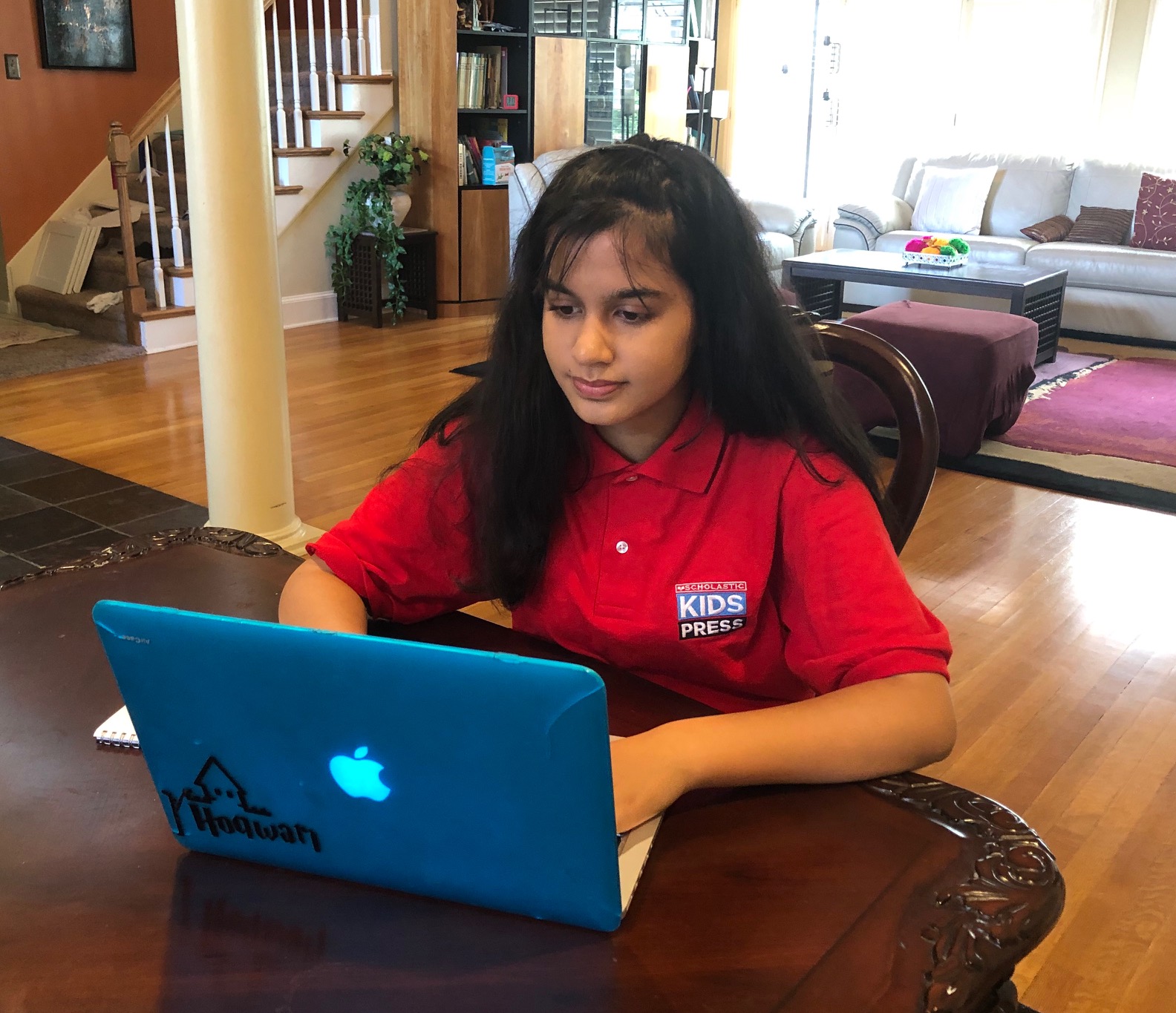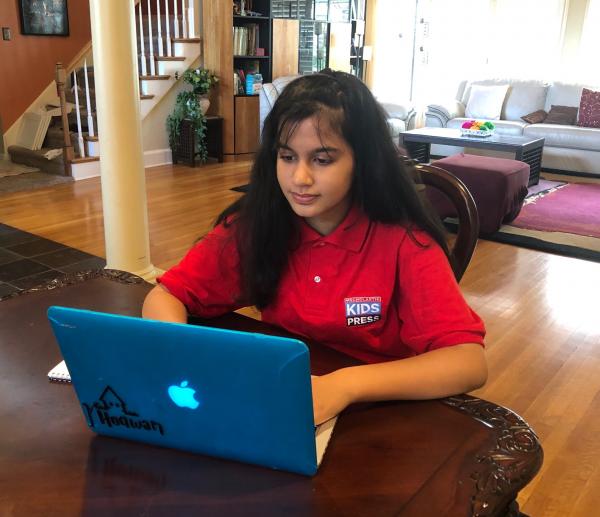KID REPORTERS’ NOTEBOOK
Teens Campaign for Racial Equality


Aanya recently interviewed two members of Teens 4 Equality from her home in Tennessee.
After the murder of George Floyd by a Minneapolis police officer on May 25, Black Lives Matter (BLM) activists began to lead protests across the United States. They have been calling for an end to police brutality and systemic racism.
After the protests erupted, six high school students decided to help lead the way for racial equality in their home state of Tennessee. After meeting up at rallies and on Twitter, Nya Collins, Jade Fuller, Kennedy Green, Emma Rose Smith, Mikayla Smith, and Zee Thomas formed Teens 4 Equality.
The girls, who are between the ages of 14 and 16 and live in Nashville, led a protest in the city in early June with help from BLM organizers. An estimated 10,000 people participated, making it one of the largest protests against white supremacy in Nashville’s history.
The teens also helped lead a protest on July 4. Afterwards, individuals who are eligible to vote in November were presented with the opportunity to register.
“EVERY VOICE COUNTS”
The six students have since gained an international following, attracting the attention of former President Barack Obama, Vermont Senator Bernie Sanders, and major news organizations.
“The [teens] are young enough to imagine a better future, to have faith in their own power to change the world for good,” columnist Margaret Renkl wrote in The New York Times. “And that faith should give the rest of us more hope than we have had in years.”
I recently spoke with Kennedy and Emma Rose via Zoom. Here are highlights from our conversation, which has been edited for brevity and clarity:
What do you hope other young people will learn from your example?
Kennedy: Don’t let anybody silence you. You can go outside and join protests, sign petitions, and post stories on social media.
Emma Rose: Don’t let people tell you that you’re too young to make a difference. It doesn't matter how old you are, your sexual orientation, your gender identity, or what creed or race you are. You can make a difference no matter what. If you put your ideas out there and advocate for change, it does help, and it does count. Every voice counts.
How do you plan to continue your activism to end systemic racism?
Kennedy: Our plan is for everybody to keep protesting. We will try to reform the government and reform the police. We need more diversity in our government. We need more more Latinos, we need more Black people, we need more Asian people, and we need more Indigenous people. If there are only white people in office, they will only solve the problems that white people have, not the problems that other people who live in America have.
Emma Rose: I’m just going to keep on posting about the movement and keep on educating friends and family, and educating myself. People need to realize that it’s really important to stay updated and educated. We’re going to organize more protests.
Have you been in touch with local lawmakers about making long-term changes to policing?
Kennedy: Yes. We know a couple of people in the Tennessee House of Representatives. We have their numbers, so we’ll stay in contact with them. I’m planning to do an internship with them and to learn more about politics.
What gives you hope that the movement that grew out of George Floyd’s death will bring lasting change?
Emma Rose: This movement didn’t exactly come out of George Floyd’s death. It’s just now being more publicized. This movement has been going on for more than 400 years, and people need to realize that there is a lot more to what has happened. There are a lot more deaths, there are a lot more Black people who didn’t get justice, who weren’t filmed as Floyd was. And that’s what everyone is fighting for.
What historical figures inspire you the most?
Kennedy: Malcolm X. He said that if we want change, we will bring it about “by any means necessary.” That phrase, “by any means necessary,” speaks to me to this day.
Why is it so important for young people to vote in the November election?
Emma Rose: A lot of people who are young feel like they don’t have a voice and feel like their vote doesn’t matter. Recent presidential elections have had very narrow margins of victory. Your vote does make a difference. Thousands of people think, “Oh, I shouldn’t vote because my vote won’t make a difference.” Well, it will make a difference. You need to put your voice out there. You need to make your voice heard. You need to vote out the people who don’t have the community’s best interests in mind and who won’t make a difference.
What would you tell kids who aren’t old enough to vote?
Kennedy: You are not born racist. You are taught to be racist. Nobody is better than anybody. We are all made the same. We all bleed blood. Even if you can’t vote, your opinion still matters. Just because you’re a child doesn’t mean you cannot make change. It doesn’t matter how young you are.
Emma Rose: As long as you use your voice, you make a difference. You add to the movement. People of color and the Black community need as many supporters and allies as they can get. Don’t let people tell you that you don’t have a voice or can’t use it. People told us that and, look, we hosted a 10,000-person protest.
